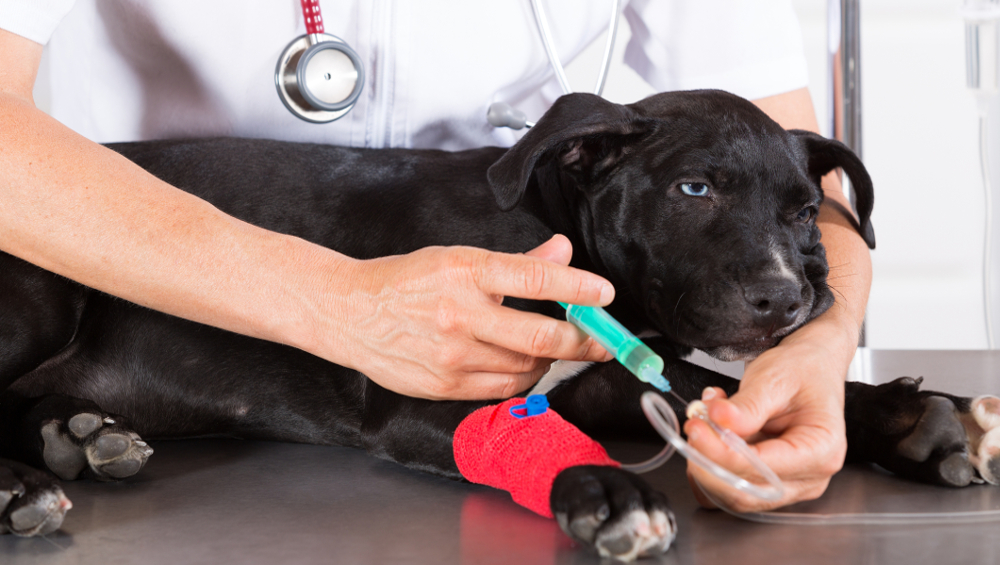
The FDA alerted pet owners yesterday to a Dec. 20, 2018, recall of dog food manufactured by Lystn LLC, dba Answers Pet Food. Salmonella, which can cause serious infections in dogs and people, was detected in a sample
Lystn, a Pennsylvania-based company, recalled a lot of “A+ Answers Straight Beef Formula for Dogs” from distribution and retail locations in the state of Nebraska, after testing by the Nebraska Department of Agriculture (NDA) found Salmonella in a sample.
The company has not recalled the product nationwide. The Food and Drug Administration is working with Lystn to determine comprehensive distribution information. The agency is warning consumers that the following product should not be fed to pets.
- A+ Answers Straight Beef Formula for Dogs. Lot 2018 20/08 20
The company specializes in “100 percent natural organic” raw pet food, according to its website, and recommends that pet owners supplement the A+ Answers Straight foods with unpasteurized goat milk or kefir made from unpasteurized cow’s milk. Raw meat and unpasteurized, raw dairy products frequently carry bacteria and other pathogens.
In 2016, Lystn received a warning letter from FDA after the agency found Salmonella Enteritidis and Salmonella Kentucky in samples of “Detailed Answers Chicken Formula” dog food. Lystn declined to recall the contaminated products, contesting FDA’s contention that the presence of Salmonella in those samples rendered the products adulterated.
Dogs infected with Salmonella may suffer from vomiting, diarrhea that is sometimes bloody, fever, loss of appetite and/or decreased activity level. Some dogs can shed Salmonella in their stool, even when not showing any symptoms, and may transmit the infection to their human handlers or to other animals.
Suggestions for consumers
Human and pet food that is contaminated with Salmonella bacteria usually does not look, smell or taste spoiled. Anyone can become sick with a Salmonella infection, but infants, children, seniors and people with weakened immune systems are at higher risk of serious illness because their immune systems are fragile, according to the CDC.
Contaminated pet food can cross-contaminate food bowls, utensils, countertops and anyone or anything that comes into contact it.
- Discard the recalled product in a secure container to prevent animals from gaining access to it.
- If your pet displays any symptoms of Salmonella infection, consult a veterinarian. Veterinarians who wish to have dogs tested for Salmonella may do so through the Vet-LIRN Network if the pet is from a household with a person infected with Salmonella.
- FDA encourages consumers to report complaints about this and other pet food products electronically through the Safety Reporting Portal or by calling their state’s FDA Consumer Complaint Coordinators.
Anyone who has handled any of the recalled pet food or lives in a home where the pet food has been used, and developed symptoms of Salmonella infection, should seek medical attention. Sick people should tell their doctors about the possible exposure to Salmonella bacteria because special tests are necessary to diagnose salmonellosis. Salmonella infection symptoms can mimic other illnesses, frequently leading to misdiagnosis.
Symptoms of Salmonella infection can include diarrhea, abdominal cramps, and fever within 12 to 72 hours after eating contaminated food. Otherwise healthy adults are usually sick for four to seven days. In some cases, however, diarrhea may be so severe that patients need to be hospitalized.
It is possible for some people to be infected with the bacteria and to not get sick or show any symptoms, but to still be able to spread the infection to others.
(To sign up for a free subscription to Food Safety News, click here.)

